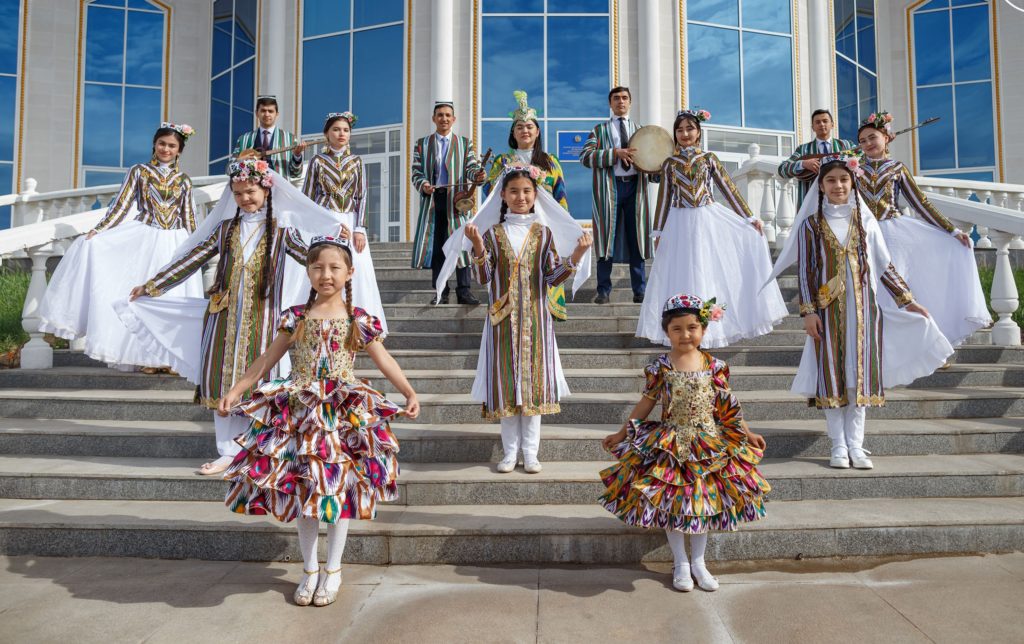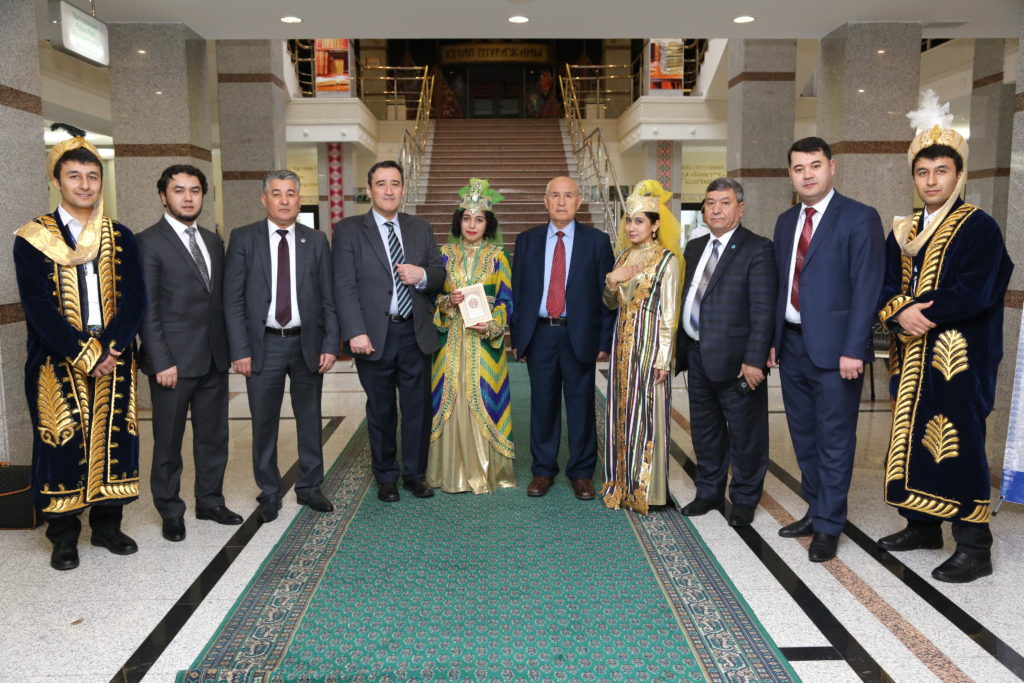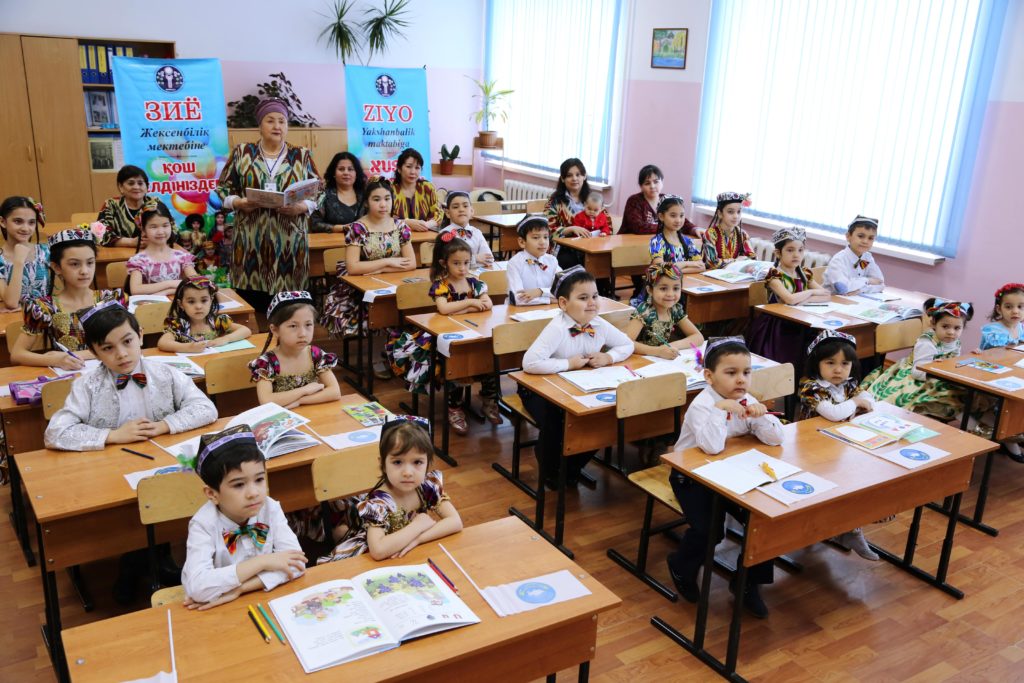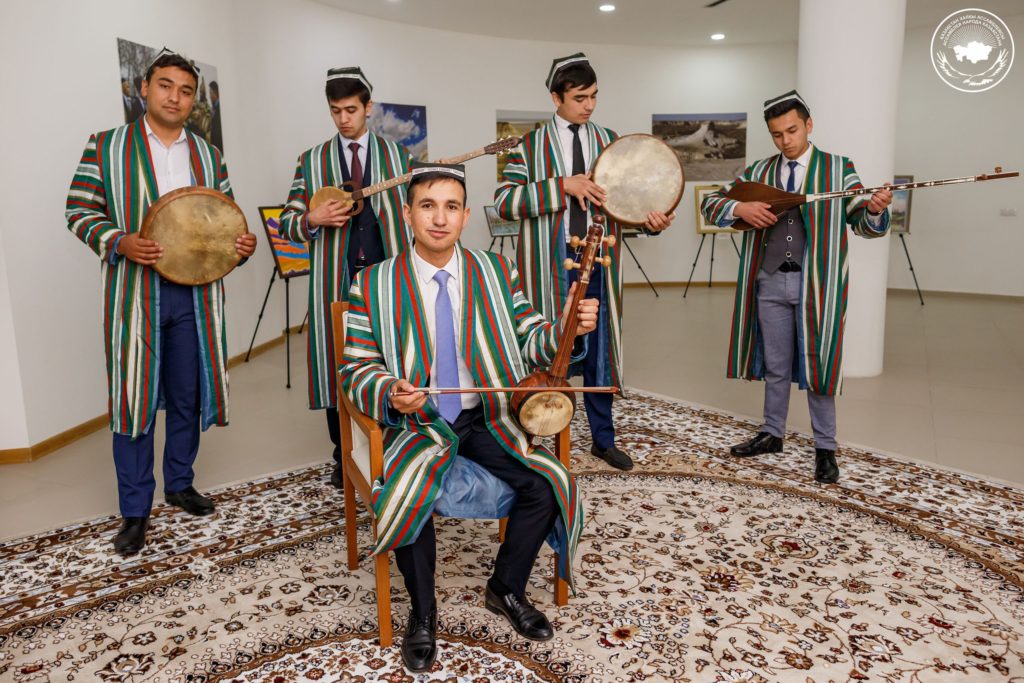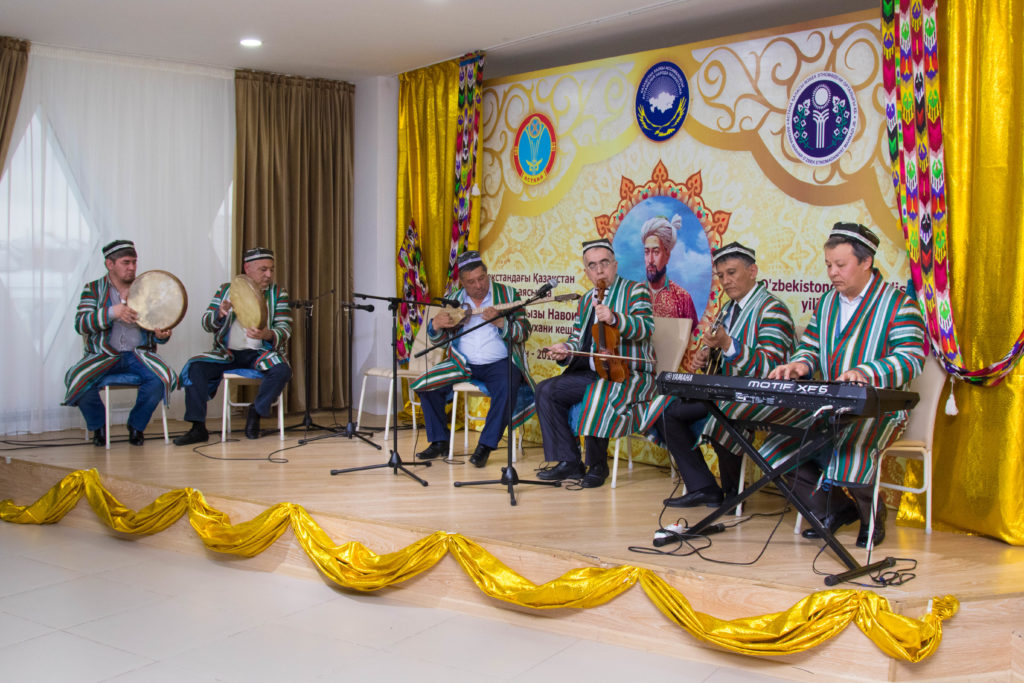NUR-SULTAN – The relevance of the Uzbek ethno cultural centre in the capital continues to grow with the increasing number of ethnic Uzbeks living in the city. The centre does its best to help local Uzbeks, especially youth, in preserving their ethnic identity through cultural activities and events.
Ethnic Uzbeks comprise one of the largest ethnic groups in Kazakhstan. At the beginning of 2019, the Kazakh Statistic Committee registered 590,993 ethnic Uzbeks, or 3.1 percent of the country’s population. Of this number, 10,581 live in the capital, a figure which has risen significantly since 1999 when there were approximately only 500 representatives of the ethnic group.
“The Uzbek ethnos show a steady and noticeable tendency to increase. Currently, the Uzbek group has the highest birth rates. In addition, Uzbeks continue to migrate to Kazakhstan due to economic reasons,” said Sherzod Pulatov, Deputy Chair of the Assembly of the People of Kazakhstan (APK) and Chair of the capital’s Uzbek ethno cultural centre, in an exclusive interview with The Astana Times.
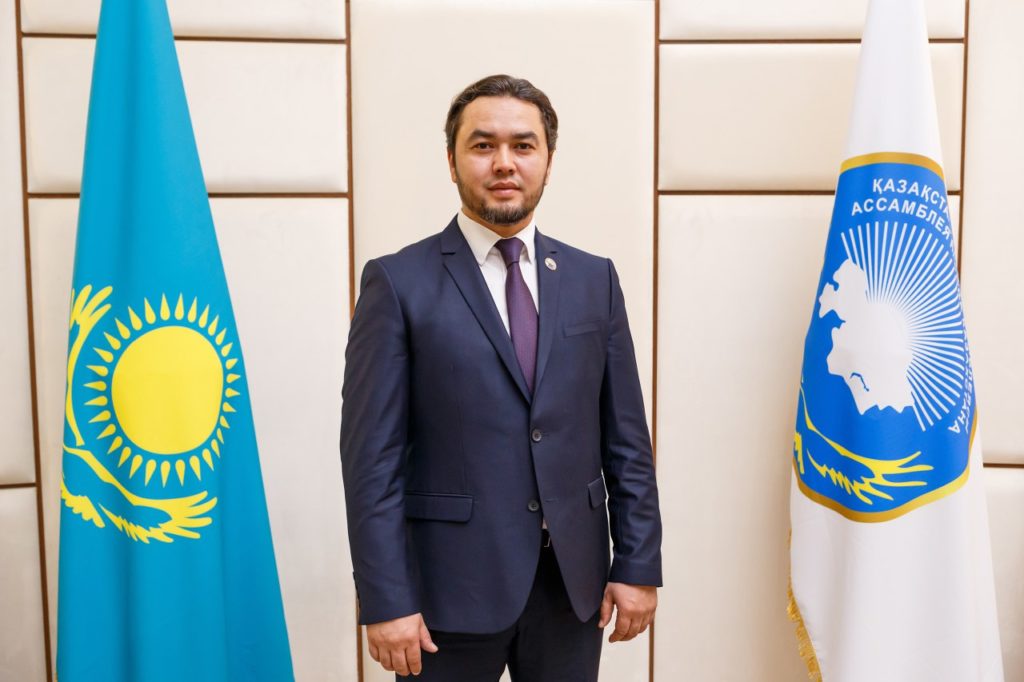
Sherzod Pulatov, Deputy Chair of the Assembly of the People of Kazakhstan and Chair of the capital’s Uzbek ethno cultural centre.
The centre experienced accompanying growth in those interested in contributing to its development. In the early stage, only 15 people volunteered, registering the centre on April 17, 2007. Today, approximately 200 people are involved, including public figures, private entrepreneurs, state organisation employees and teachers and students at higher education institutions.
Pulatov has led the cultural centre for the last ten years. During his term, the centre has formed two creative groups, the Poytakht vocal and instrumental ensemble and Astana Gunchalari dance ensemble, which have been praised by national and city level organisations for their outstanding performances.
In 2015, the centre opened Ziyo Sunday school for children where they can learn Uzbek language, history, traditions and culture. The capital akimat (city administration) began supporting Ziyo two years later by providing space and four qualified teachers at public lyceum No. 53. At present, 57 students attend the weekly classes.
“The main highlight of the school is that children of all nationalities study here, not only the Uzbek language, but also Kazakh, Russian and English. The most distinctive feature of this school is that the Uzbek language is studied using Latin graphics,” he said.
The centre is a member of APK and operates as an independent non-profit organisation. Similar to many other ethnic centres, it works to preserve the integrity of local Uzbeks while protecting their political, social and other rights and freedoms. The capital centre also has contributed to the nationwide Year of the Youth initiative.
“We focus on youth in order to pass on culture to the future generation and educate it in the spirit of Kazakh patriotism with high moral and ethical qualities,” he noted.
The centre encourages its young members to participate more in the activities of the centre and assembly.
“We do our best to motivate young people in order to attract them to social work, to convey the culture of the ethnic group and experience in the association,” he added.
This year, the centre’s council appointed four young people to deputy positions in its education, finance and culture departments.
“Moreover, we involve young people in all ongoing events both by our centre and the Assembly of the People of Kazakhstan as a whole. Our youth take part in all the events held by the assembly,” said Pulatov.
The centre’s youth also participated in the BIRLIK-2019 international summer camp and 100 New Faces: How to Become Successful summer school in the East Kazakhstan Region.
Kazakhstan is proud of its multi-ethnic environment where all communities celebrate their cultural differences and, at the same time, signify their unity. The centres often unite in organising festive cultural events. The Uzbek centre has arranged large activities such as the My Kazakhstan – My Country national festival, a concert as a part of the Alga Kazakhstan 7th Asian Winter Games, Ulkenge – Kurmet, Ata Zangdagy Mindet charity event, Alisher Navoi literary and cultural evening and Dostyk Cup futsal tournament.
An array of cultural events awaits capital residents. The centre plans to organise an exhibition of Uzbek national clothing, demonstrate national children’s games and conduct master classes of the finest dishes from Uzbek cuisine.
An international literary evening dedicated to Uzbek poet, writer and politician Alisher Navoi and Kazakh poet Abai Kunanbayev is also being planned, highlighted by a youth competition. The centre is also making preparations for the second national Dostyk Cup, as well as the traditional Sumalyak Party and Pilau (Plov) Party – festive events celebrating Turkic and Uzbek national dishes.
“Undoubtedly, we will continue to work in the most active mode; on the basis of continuity, we will continue to transfer the accumulated experience to the younger generation,” he said.
Uzbeks are represented in all Kazakh regions, with the majority (87.57 percent) of ethnic settlements in the South Kazakhstan Region, where the two countries share a border. The first Uzbek ethno cultural centre in the country opened in 1989 in the South Kazakhstan Region.
The three large centres in the region united under the Dustlik Association of Uzbeks in Kazakhstan in 1995 and currently includes 12 centres. Forty-two other regional, city and district level centres are in operation.
“The activities of all these centres are aimed at preserving and developing Uzbek language and culture, promoting the policies pursued in our state and uniting all ethnic groups of the country into the united people of Kazakhstan,” said Pulatov.


